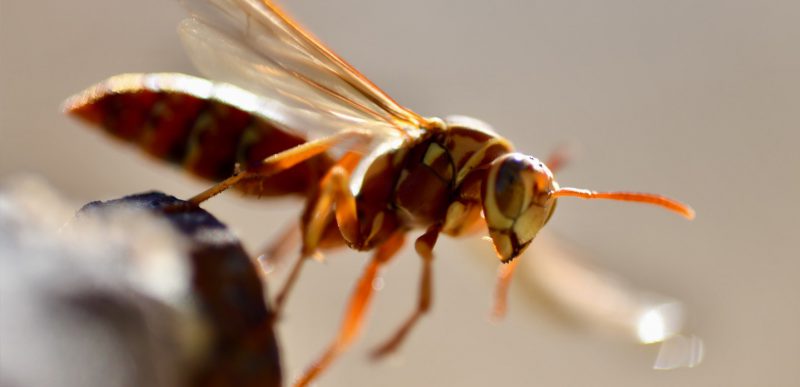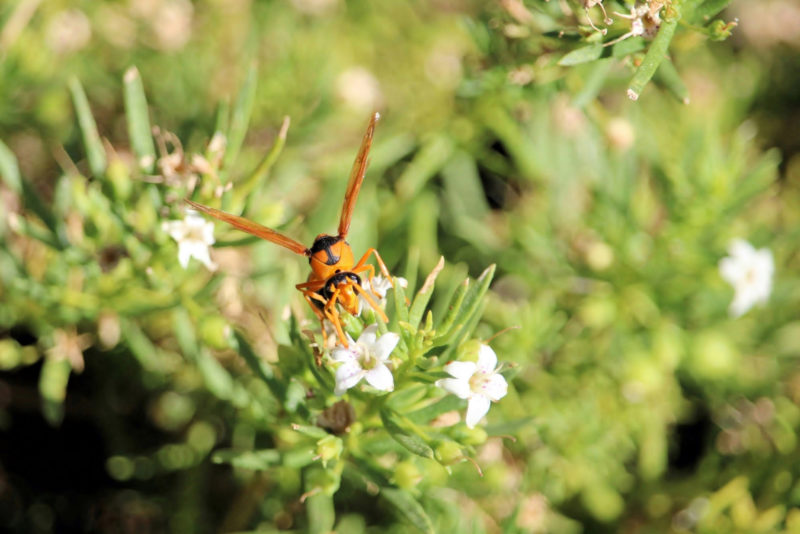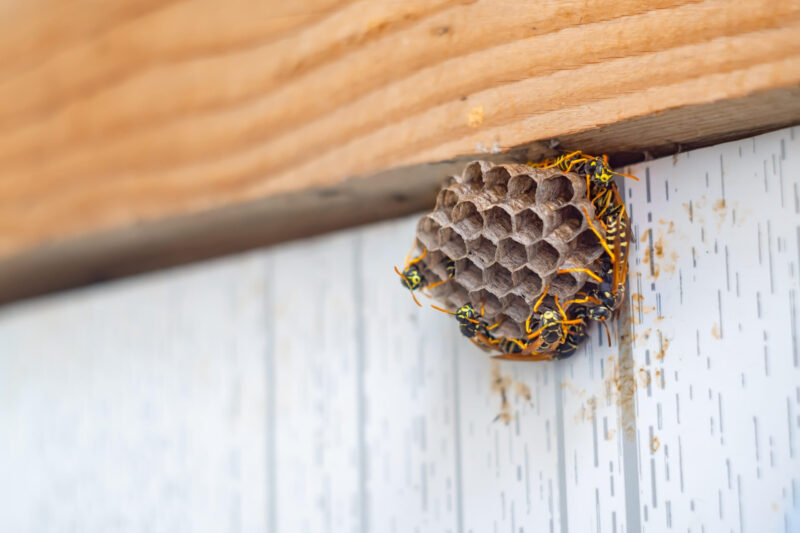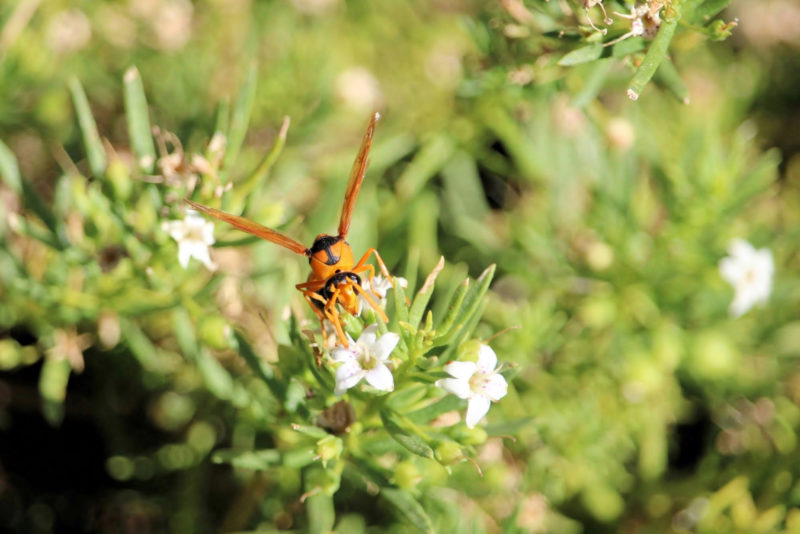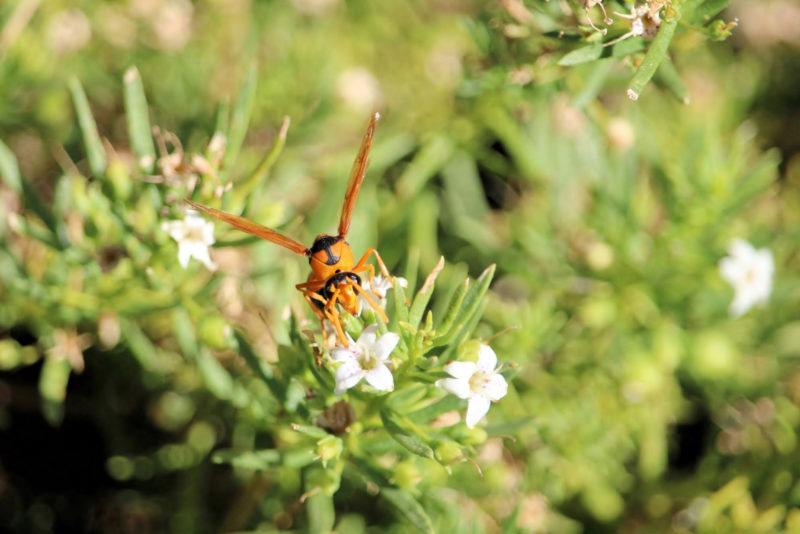Wasps
Wasps have a painful sting and can be highly aggressive. They may strike many times, unlike bees, and even inject a pheromone that draws in other wasps. In New Zealand, wasps prefer to build their nests in open spaces on buildings, such as entrances and walls beneath eaves, where they can readily come into contact with people on a pleasant sunny day. If you think there might be a wasp nest on your property, call the experts rather than taking the chance of getting stung.
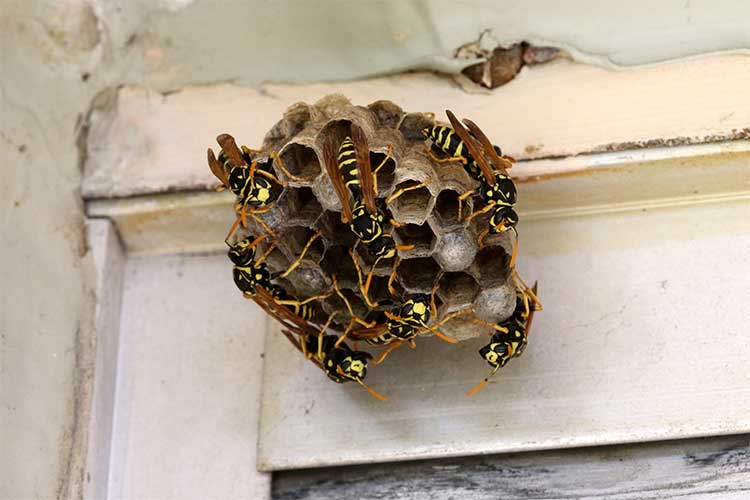
Shield Your Family & Home Year Round from Wasps
Flick's Home Protection Plans
Flick's Home Protection Plans provide effective and affordable protection for your home and family from a wide range of pests. Our Gold plan includes preventive measures to stop wasps from entering your home in the first place, as well as reactive and emergency wasp pest control services if needed. All plans come with a 12-month warranty* and easy monthly payments. With a variety of plans to choose from, you can find a plan that meets your specific needs and budget. Contact your local Flick branch to see if Home Protection is available in your area and begin shielding your family from wasps today!
Commercial Pest Solutions
Integrated Wasp Solutions
It is essential for businesses to prioritise the health and safety of their employees and customers. Wasps not only pose a health risk but also damage property and reputation. Flick’s professional commercial pest control services provide tailored solutions to prevent and eliminate any pest infestations, ensuring a clean and hygienic environment for everyone. Our regular inspections and treatments help to maintain a pest-free workplace and protect your business from potential pest related damage. Trusting in Flick’s commercial pest control solutions is a smart investment in the long-term success and reputation of any business.
Learn more here or call 0800 710 010.
Common Wasp Questions
Where do wasps live?
Wasps make tiny nests near homes, inside fruit, and in the soil. They may use paper or mud to build their nest. It is well known that European wasps build their nests underground or very high up on walls.
When are wasps most active?
The daytime is when wasps are most active, while some species are only active in the morning. The warmer months of the year are when they are most active. Wasps can become hostile when they are close to their nests, trash bins, or food.
Why are wasps dangerous?
The aggressive European wasp is the second pest responsible for hospitalisations, after bees. When families are spending time outside in the warmer months, they are usually most active. The most vulnerable groups include kids and anyone with wasp allergies. Multiple stings from the European wasp can be extremely painful.
Do I need professional wasp help?
A wasp nest in your yard can be deadly, especially for young children or anyone who has allergies. If the nest is in danger, wasps will sting repeatedly. Wasp nests should not be disturbed. Get Flick to securely remove the nest.
What should I do if I spot a wasp nest?
Avoid approaching any wasp nests you see on your property. Wasps may act violently if they feel threatened or when defending their nest. Calling Flick, who will remove the nest from your property carefully, is the safest approach to get rid of wasps.
Common Wasp Species
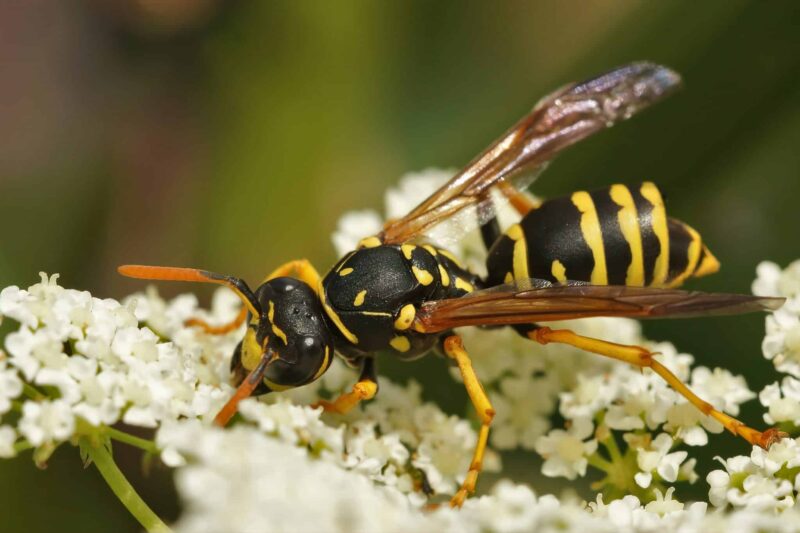
European Wasp
Apppearance
The body of the European Wasp is yellow with triangle-shaped black markings. Worker wasps range in size from 12 to 17mm.
I found Wasps! Help!
Don't worry, we're here to help. Follow these steps to stay safe until help arrives!
Call a Professional
Call Flick Pest Control Immediately.
If you encounter wasps in your home or business, you may be dealing with an infestation. Don’t wait until the problem gets out of hand – we can help protect your property and ensure the health and safety of those around you. Fill out the form below or call 0800 710 010 today.
Leave the Wasps Alone
Trust Flick Pest Control to handle the situation
Our pest control technicians have the knowledge, experience, and tools necessary to effectively and safely eliminate pests from your home or business. Attempting to treat wasps on your own can be risky and may not fully eradicate the problem.
We will and ensure a safe and effective outcome for your property.
There May be More!
Don’t Go Looking Around!
Flick’s pest control experts will perform a thorough inspection of the property to identify any areas where wasps may be present, followed by the development of a treatment plan tailored to the specific needs of the situation. By implementing effective pest control strategies, we can help ensure a pest-free environment for you.



